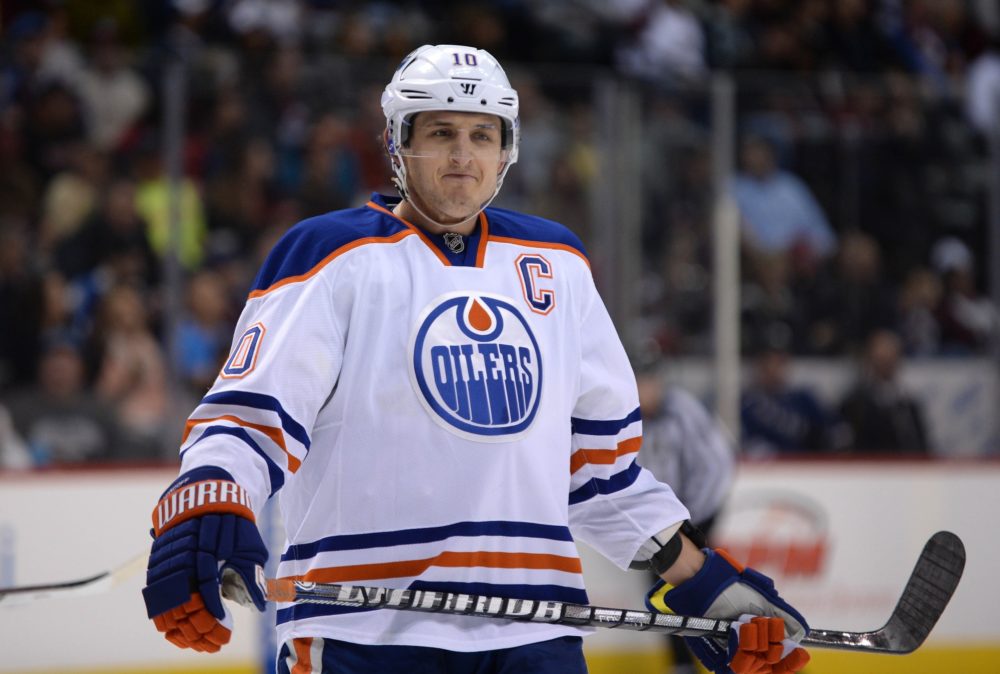It’s happens all the time, across all sports. No one is immune. In the billion dollar industry that is the NHL, there has to be accountability. When a player is handed multi-millions of dollars in salary, there are expected to perform. But General Managers need to be saved from themselves, and from player-agents who get their clients big paydays, deserved or not. Players see a giant amount of money on the table, of course their going to take it. But with big expectations comes a responsibility to live up to those expectations, and we all know how merciless fans and media can be.

The term “contract year” is often bandied about around the NHL. It occurs when a player, often average to below average, have highly productive seasons just before they’re about to reach unrestricted free agency. This phenomenon usually does nothing more than pad said players bank account, and they find themselves under the weight of a massive contract they can’t possibly live up to. For the most part, they aren’t bad players. But all it takes is a sub-par season and they are quickly labelled overpaid and overrated free agent busts. For example:
Ville Leino
A typical Detroit Red Wings gem, Ville Leino played just a couple of short seasons with Detroit before being traded to the Philadelphia Flyers in 2010. That year, the Flyers went all the way to the Cup final where Leino exploded for 21 points in 19 games. The following season he scored a career high 19 goals and 53 points, earning him a hefty raise as a UFA. He signed a six-year, $27 million dollar contract with the Buffalo Sabres in 2011. Since then, he has scored a total of 10 goals.
Ville Leino isn’t a bad player. But the Sabres didn’t see his breakout playoff run as an anomaly, and felt he was worth the financial risk. There’s a chance he bounces back next season, but to most people around the NHL, he’s considered ridiculously overpaid, and thus untradeable. Not exactly a nice reputation to have.
Cristobal Huet
Huet was a rising star in Montreal, so much so that the city was outraged when he was traded to Washington despite being a All-Star and the Habs number one goalie. The Canadiens management wanted to go in the direction a young promising goalie in Carey Price, and it turned out to the right choice. The Chicago Blackhawks signed Huet to a four year contract in 2008 that would earn him over $5 million dollars a season. Huet eventually played himself out of the starting role and was loaned to a team in Switzerland in 2010 to help ease the Hawks cap situation. He hasn’t played in the NHL since.
Mike Komisarek
Perhaps a product of playing with a strong d-partner in Andrei Markov, Mike Komisarek looked like the perfect bruising stay at home defenseman that every team needs. He made the All-Star team in 2009 and signed a big free agent with the Toronto Maple Leafs that summer. His stint in Toronto was pretty much a disaster and he quickly became the fans whipping boy. He was placed on waivers last season and finished the hockey year in the AHL.
Scott Gomez
A two-time Stanley Champion and NHL’s rookie of the year, Scott Gomez appeared to be a budding superstar. And in 2007 the New York Rangers paid him like one. He signed a seven year contract that earned him $7.5 million dollars a season, and it was essentially the beginning of the end for Gomez. He quickly became known as one of the league’s most overpaid and overrated free agent busts. Somehow the Rangers were able to trade Gomez and his contract to Montreal where his inability to score goals become the NHL’s biggest running joke. Gomez didn’t live up to his contract to be sure, but he should have never been given such a deal.
Shawn Horcoff
The Edmonton Oilers signed Shawn Horcoff to a six year, $33 million dollar contract in 2008. Horcoff was a solid player for the team but he wasn’t known as being a go-to offensive player. He was named team Captain in 2010, but the lucrative contract followed him around like a bad smell through years of injury and low productivity. Horcoff could be a key player for many teams, his grit and leadership make him a valuable piece, but just not at a price tag of $5.5 million a season. Horcoff will become a free agent in 2015.
It seems abundantly clear that the Oilers no longer see a fit for Horcoff in their line-up. Had he been taking up only two million dollars of cap space, perhaps he could finish out his deal in Edmonton. Fair or not, Horcoff like so many others is judged by his salary, and unfortunately for the grizzled vet, it hasn’t been a great run. Players with such large contracts end up being burdens to their team instead of assets, though it’s hard to have sympathy for either side. GM’s are the ones who offer the contracts, and players are the ones who sign them. Perhaps taking a little less may have saved a few careers over the years. They still would have been millionaires in the end, but would have had to sacrifice buying a second boat, or beach house in Maui.
There are many reasons GM’s hand out bloated contracts like Oprah hands out prizes. Maybe they’re trying to save their job. Maybe they feel they can’t risk losing a certain player and therefore have to give in. Maybe it’s because they really feel like this player is going to help the team and therefore is worth the financial risk. In any case, there are many filthy rich players out there who probably would have been best served taking a little less rather than heaping upon themselves lofty expectations that they simply aren’t good enough to reach.